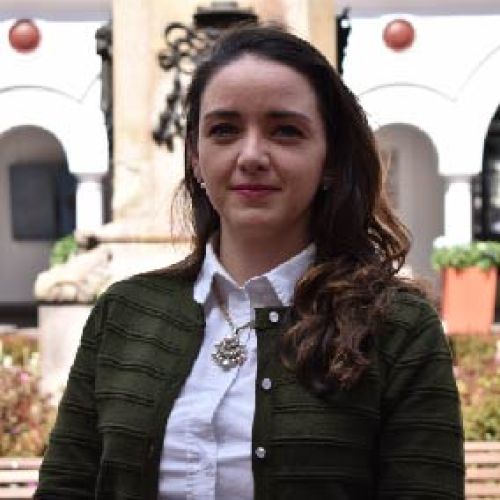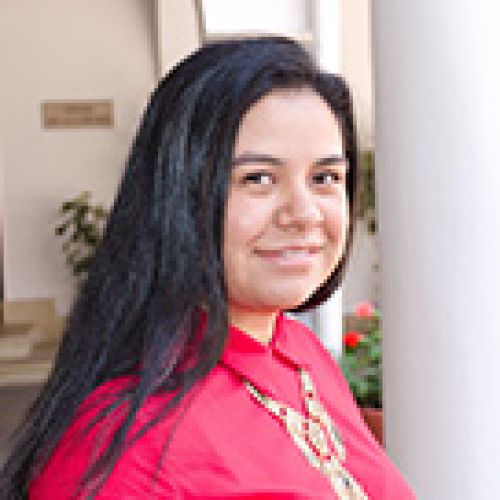Gestora de Transferencia de Conocimiento
Tel. 2970200 Ext. 3289
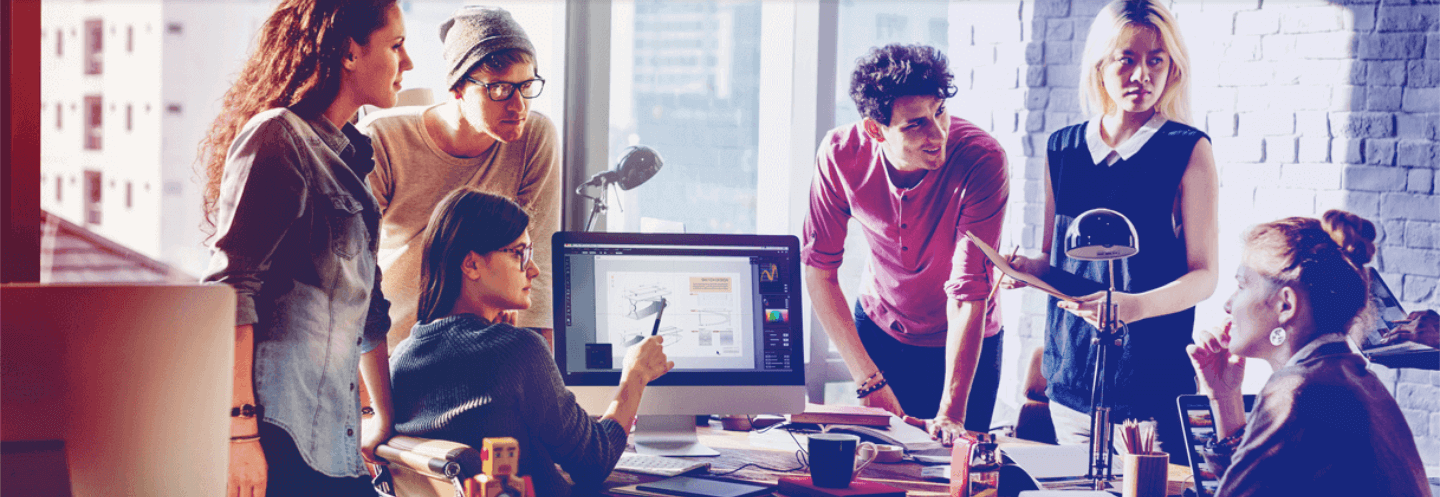
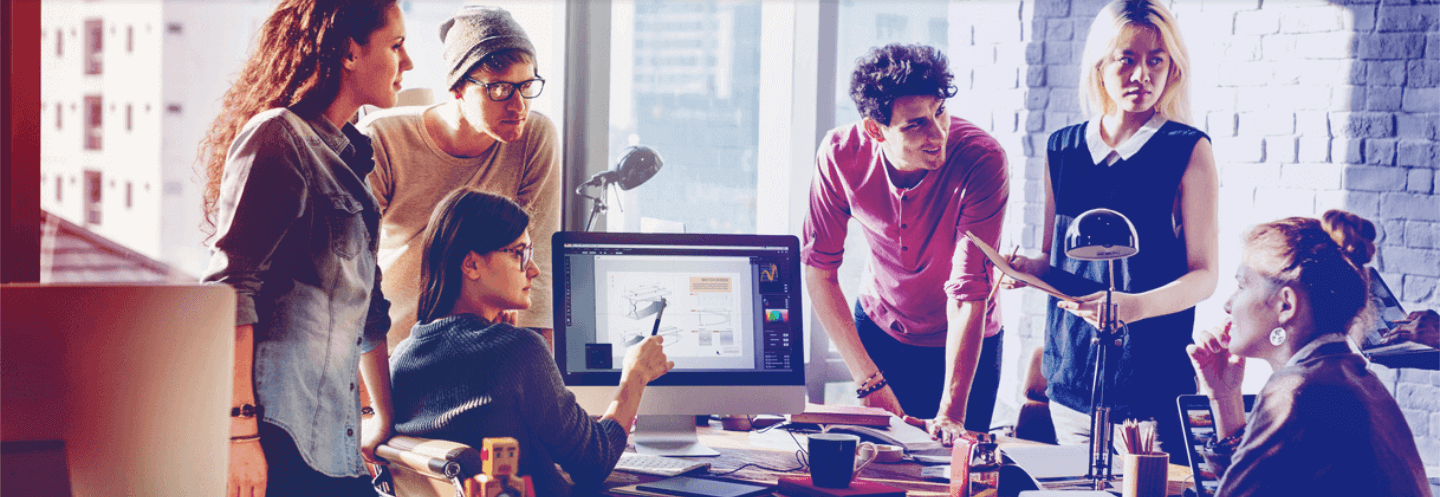
We connect the research generated at the University with the demands of the social and productive sectors, seeking to provide solutions to real problems in society and the market, improving the quality of life for people.
The Knowledge Transfer Program accompanies academic units and professors interested in connecting their ideas, capabilities, or research results to build knowledge with non-academic actors (companies, communities, government entities, among others).
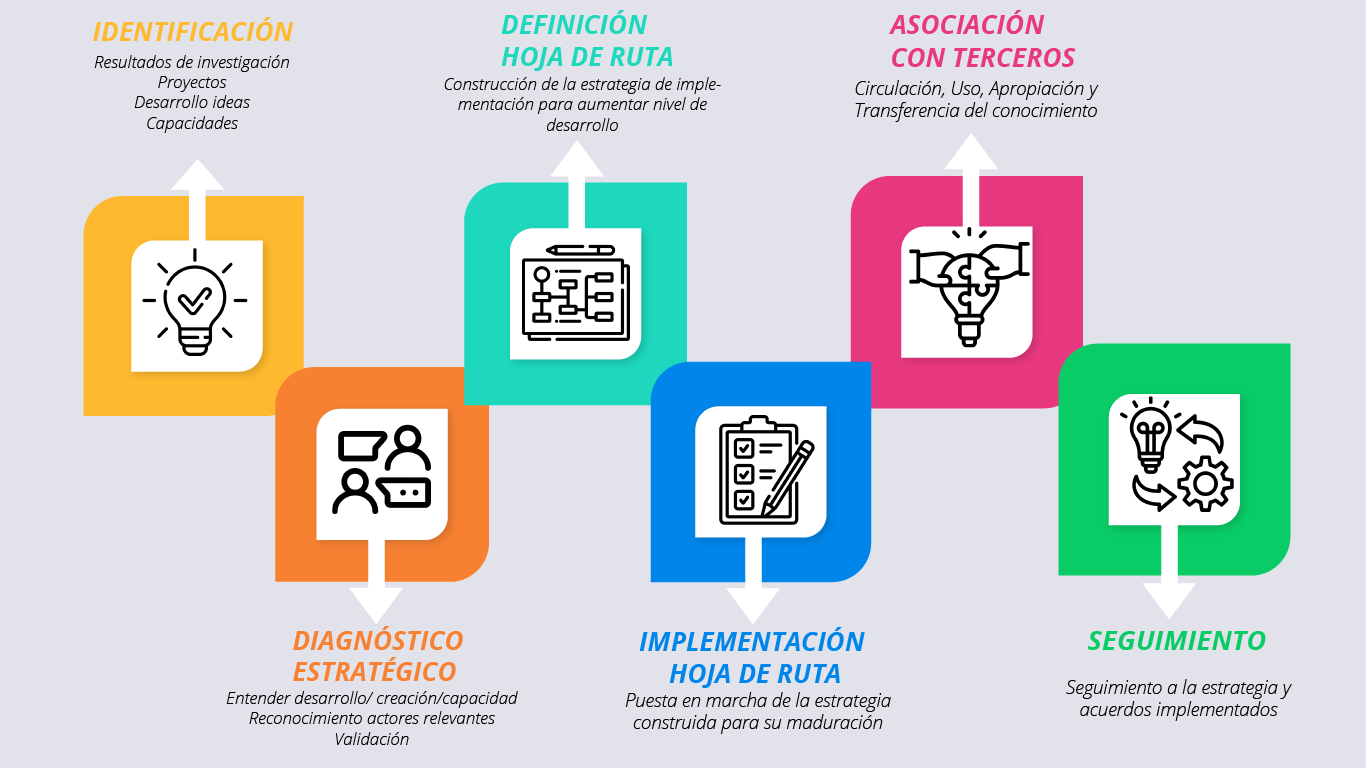
We accompany and strengthen capacities for the effective implementation of transfer channels for the social appropriation of knowledge in the University environment:
Recognition of research results, projects, and capacities that are suitable for the transfer, use, appropriation, or circulation of knowledge.
Initial approach to the project, research results, capabilities. This diagnosis documents key points to understand the dynamics of the relationship with the environment.
Construction of the implementation strategy for the transfer, use, appropriation, or circulation of knowledge. The roadmap, at a minimum, includes:
The implementation, a joint responsibility involving the Transfer Program, academic units, professors, researchers, and individuals with scientific talent, begins with activities aimed at achieving short-term objectives. Once these objectives have been met, the results are jointly evaluated, and the diagnosis is complemented according to the state of progress in each of the items.
The implementation of the roadmap involves a continuous process of relationship with non-academic actors, which allows validating, jointly building, and strengthening research.
The implementation of the roadmap also involves continuous monitoring and evaluation, in which the Transfer Program, academic units, researchers, professors, and individuals with scientific talent determine the state of progress in each of the components of the strategy.
The Knowledge Transfer Program accompanies academic units and professors interested in connecting their ideas, capabilities, or research results to build knowledge with non-academic actors (companies, communities, government entities, among others).

We accompany and strengthen capacities for the effective implementation of transfer channels for the social appropriation of knowledge in the University environment:
Recognition of research results, projects, and capacities that are suitable for the transfer, use, appropriation, or circulation of knowledge.
Initial approach to the project, research results, capabilities. This diagnosis documents key points to understand the dynamics of the relationship with the environment.
Construction of the implementation strategy for the transfer, use, appropriation, or circulation of knowledge. The roadmap, at a minimum, includes:
The implementation, a joint responsibility involving the Transfer Program, academic units, professors, researchers, and individuals with scientific talent, begins with activities aimed at achieving short-term objectives. Once these objectives have been met, the results are jointly evaluated, and the diagnosis is complemented according to the state of progress in each of the items.
The implementation of the roadmap involves a continuous process of relationship with non-academic actors, which allows validating, jointly building, and strengthening research.
The implementation of the roadmap also involves continuous monitoring and evaluation, in which the Transfer Program, academic units, researchers, professors, and individuals with scientific talent determine the state of progress in each of the components of the strategy.
This is a tool for the Rosarista community which establishes criteria for the use of intellectual property and facilitates institutional relationship strategies. It recognizes principles such as open science, respect for creation, scientific integrity, and the substantial functions of the University.
Students own the patrimonial copyright to their theses unless they result from significant use of university resources.
Patrimonial copyrights for classes and lectures given by professors shall be owned by the professors.
When the student takes part in the creation of works protectable by copyright, the terms and conditions of the ownership of rights must be specified from the outset.
Students, teachers, professors, researchers, and administrative staff may make use of works protected by copyright, without prior authorization from their owners, for ACADEMIC and RESEARCH use.
For more information, see: https://repository.urosario.edu.co/handle/10336/33781
Para esta y más información, consultar información aquí
“This involves the transformation of the scientific process to make it more open and inclusive to all relevant stakeholders within and outside the scientific community”
If you wish to receive advice from CATI Institutional UR, please contact us by email:
These are the Technology and Innovation Support Centers that provide specialized guidance services in industrial property and technological information. They are part of a program led by the Superintendence of Industry and Commerce (SIC) and the World Intellectual Property Organization (WIPO).
If you wish to receive advice from CATI Institutional UR, please contact us by email:
direccion.investigación@urosario.edu.co o catalina.robles@urosario.edu.co
This is a tool for the Rosarista community which establishes criteria for the use of intellectual property and facilitates institutional relationship strategies. It recognizes principles such as open science, respect for creation, scientific integrity, and the substantial functions of the University.
Students own the patrimonial copyright to their theses unless they result from significant use of university resources.
Patrimonial copyrights for classes and lectures given by professors shall be owned by the professors.
When the student takes part in the creation of works protectable by copyright, the terms and conditions of the ownership of rights must be specified from the outset.
Students, teachers, professors, researchers, and administrative staff may make use of works protected by copyright, without prior authorization from their owners, for ACADEMIC and RESEARCH use.
For more information, see: https://repository.urosario.edu.co/handle/10336/33781
Para esta y más información, consultar información aquí
“This involves the transformation of the scientific process to make it more open and inclusive to all relevant stakeholders within and outside the scientific community”
If you wish to receive advice from CATI Institutional UR, please contact us by email:
These are the Technology and Innovation Support Centers that provide specialized guidance services in industrial property and technological information. They are part of a program led by the Superintendence of Industry and Commerce (SIC) and the World Intellectual Property Organization (WIPO).
If you wish to receive advice from CATI Institutional UR, please contact us by email:
direccion.investigación@urosario.edu.co o catalina.robles@urosario.edu.co
